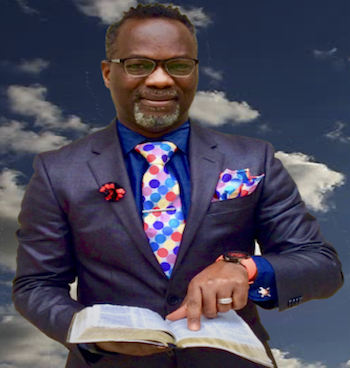Inspiring Faith and Empowering Communities
Black Christian leaders have played a significant role in shaping the history and culture of the United States. From the time of slavery to the present day, Black Christian leaders have been at the forefront of social and political movements, advocating for justice, equality, and human rights. The term “Black Christian leader” encompasses a diverse group of individuals who have made significant contributions to the Black community and the Church.
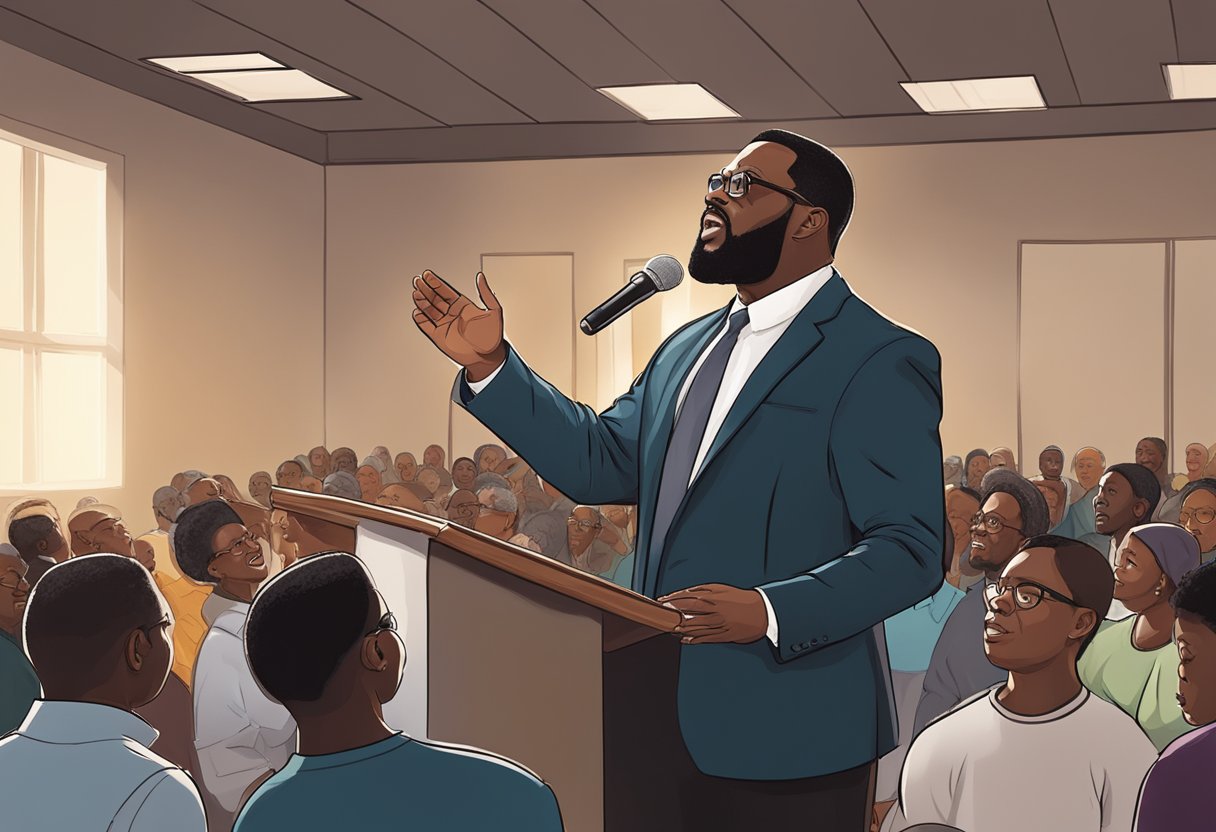
Historically, Black Christian leaders have had to navigate complex social and political landscapes. During the era of slavery, for example, many Black Christians turned to the Church as a source of hope and strength, even as they faced persecution and oppression. In the years that followed, Black Christian leaders played a key role in the Civil Rights Movement, using their faith to inspire and mobilize others in the fight for justice and equality.
Today, Black Christian leaders continue to be a vital force in the Church and in society at large. They are educators, pastors, activists, and scholars who are committed to making a positive impact on the world around them. Whether through advocacy work, community organizing, or theological scholarship, Black Christian leaders are making a difference in the lives of countless individuals.
Key Takeaways
- Black Christian leaders have played a significant role in shaping the history and culture of the United States.
- From the time of slavery to the present day, Black Christian leaders have been at the forefront of social and political movements, advocating for justice, equality, and human rights.
- Today, Black Christian leaders continue to be a vital force in the Church and in society at large, making a positive impact on the world around them through advocacy work, community organizing, or theological scholarship.
Black Christian Leader: Historical Context
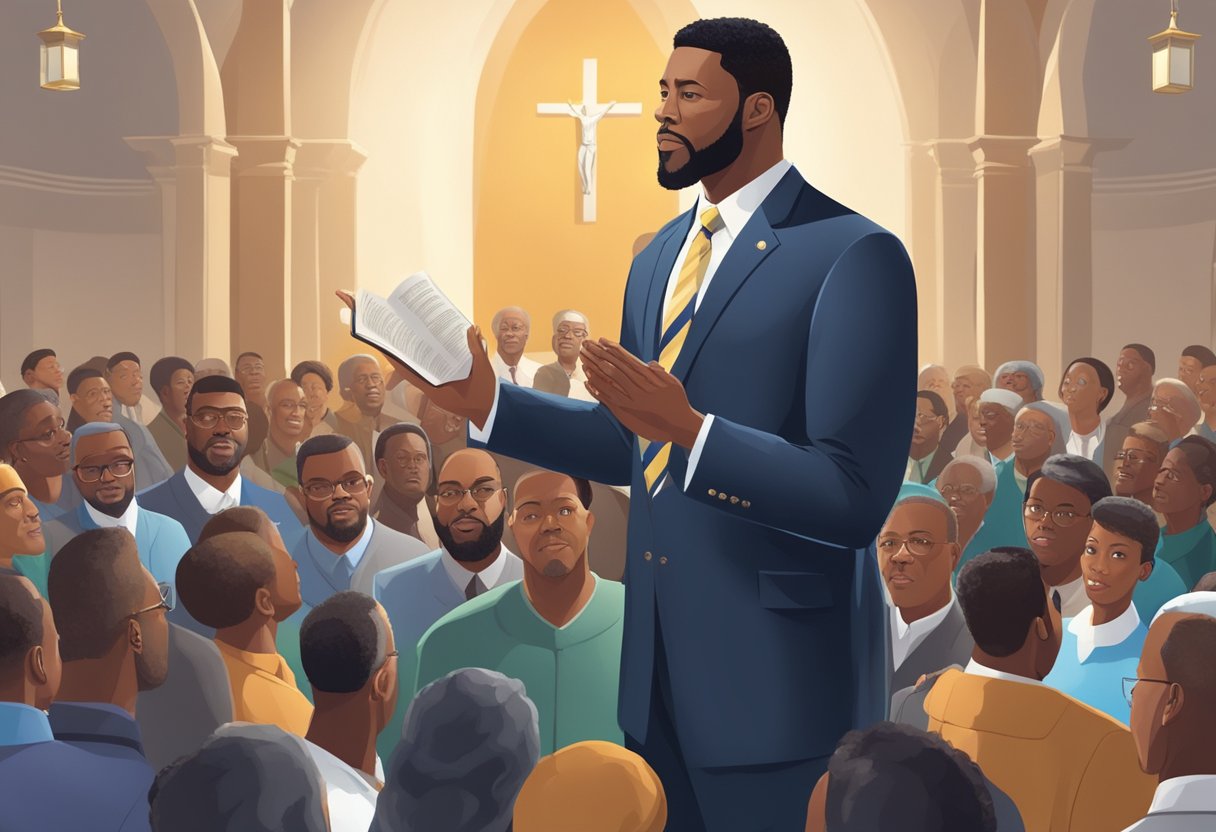
The history of Black Christianity in the United States is a complex and multifaceted story that spans centuries. The origins of Black Christianity can be traced back to the time of slavery when African slaves were introduced to Christianity by their white masters. However, it wasn’t until the early 19th century that Black Christians began to form their own churches and denominations.
Origins of Black Christianity
During the period of slavery, many African slaves were forcibly converted to Christianity by their white masters. While some slaves embraced Christianity, others rejected it as a tool of oppression. Despite the challenges, Black Christians were able to form their own religious communities and develop their own unique expressions of faith.
Key Movements and Eras
Throughout the history of Black Christianity, there have been many key movements and eras that have shaped the faith and its followers. One of the most significant of these movements was the Civil Rights Movement of the 1950s and 1960s. During this time, Black Christian leaders such as Martin Luther King Jr. and Malcolm X played a crucial role in the fight for equality and justice.
Another important era in the history of Black Christianity was the Black Power Movement of the late 1960s and early 1970s. During this time, Black Christians began to question the role of Christianity in the struggle for Black liberation and began to develop their own unique expressions of faith that were more closely aligned with their political and social goals.
Despite the challenges and struggles faced by Black Christians throughout history, the faith has remained a powerful force in the lives of many African Americans. Today, Black Christian leaders continue to play an important role in the fight for social justice and equality.
The Role of the Black Church
The Black Church has played a significant role in the lives of African Americans. It has been a source of spiritual, social, and political empowerment. The Black Church has been a place where African Americans can come together to worship, build community, and advocate for their rights.
Community Building
One of the primary roles of the Black Church is to build community. The Black Church has been a place where African Americans can come together to support one another and build relationships. Churches have organized social events, youth programs, and other activities that help to bring people together. The Black Church has also been a place where African Americans can find support during difficult times.
Civil Rights Advocacy
The Black Church has played an important role in the Civil Rights Movement. Many of the leaders of the Civil Rights Movement were Black Christian leaders. The Black Church provided a platform for these leaders to speak out against discrimination and inequality. Churches organized protests, marches, and other demonstrations to advocate for civil rights. The Black Church also provided support for those who were arrested or injured during protests.
In summary, the Black Church has played a significant role in the lives of African Americans. It has been a place where people can come together to worship, build community, and advocate for their rights. The Black Church has been a source of spiritual, social, and political empowerment for African Americans.
Cultural Impact
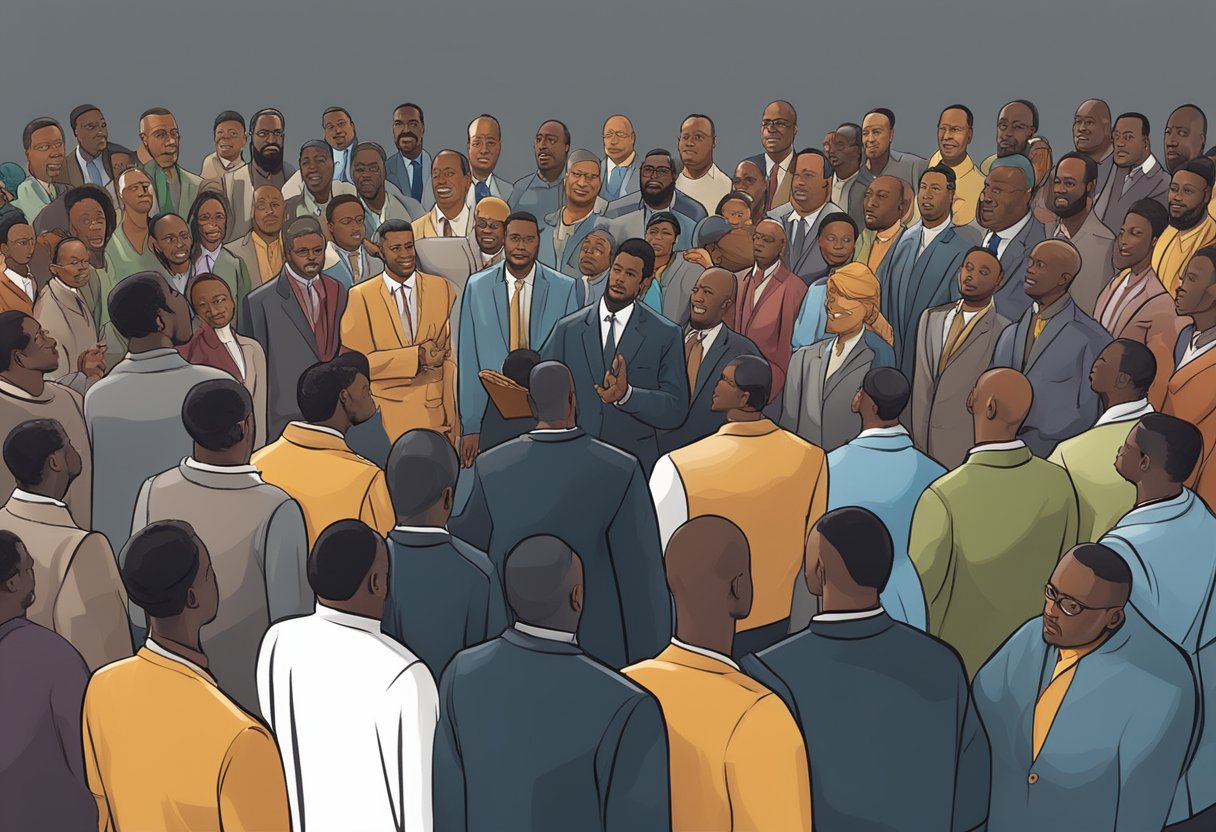
Black Christian leaders have had a significant cultural impact on society, both in the past and present. This section will examine the impact of Black Christian leaders in two areas: music and worship and literature and oratory.
Music and Worship
Black Christian leaders have been instrumental in shaping the music and worship of the Black Church. The Black Church has a rich musical heritage, and this is due in large part to the contributions of Black Christian leaders. They have introduced new musical styles, such as gospel music, which has become an integral part of the Black Church’s worship. Gospel music is characterized by its powerful vocals, strong rhythms, and uplifting lyrics. It has been a source of inspiration and comfort for many Black Christians and has also had a significant impact on American music as a whole.
Literature and Oratory
Black Christian leaders have also made significant contributions to literature and oratory. They have written books, essays, and speeches that have had a profound impact on society. For example, Martin Luther King Jr.’s “Letter from Birmingham Jail” is a powerful piece of literature that has inspired generations of people to fight for justice and equality. Black Christian leaders have also been known for their powerful oratory skills. They have used their voices to speak out against injustice and to inspire people to take action. Their speeches have been instrumental in shaping public opinion and bringing about social change.
In conclusion, Black Christian leaders have had a significant cultural impact on society. Their contributions to music and worship, as well as literature and oratory, have helped to shape American culture and inspire generations of people.
Education and Institutions
Seminaries and Theological Education
Black Christian leaders have made significant contributions to theological education and seminaries. Many Black Christian leaders have attended seminaries and divinity schools to obtain the necessary education and training to become pastors and leaders. Historically Black seminaries, such as Howard University School of Divinity and Interdenominational Theological Center, have played a crucial role in providing theological education to Black Christian leaders.
Black Christian leaders have also been instrumental in advocating for diversity and inclusion in theological education. They have called for the inclusion of Black perspectives and experiences in theological curricula and have pushed for the hiring of Black faculty members in seminaries and divinity schools. This advocacy has led to the establishment of Black theology as a legitimate field of study in theological education.
Church-Based Community Programs
Black Christian leaders have also played a critical role in developing and leading church-based community programs. These programs are designed to address social issues such as poverty, housing, and education. Black Christian leaders have used their position within the church to mobilize congregations and community members to address these issues.
One example of a church-based community program is the Black Church Food Security Network, which was founded by Reverend Heber Brown III. This program seeks to address food insecurity in Black communities by connecting Black farmers with Black churches. Through this program, Black churches are able to provide fresh and healthy food to their congregations and surrounding communities.
Another example is the Children’s Defense Fund Freedom Schools program, which was founded by Marian Wright Edelman. This program provides summer enrichment programs for children in under-resourced communities. The program seeks to empower children and promote literacy, leadership, and social justice.
Overall, Black Christian leaders have played a vital role in shaping theological education and developing church-based community programs. Their contributions have led to greater diversity and inclusion within theological education and have helped to address social issues in Black communities.
Contemporary Issues
Social Justice
Black Christian leaders face a number of contemporary issues, including the ongoing fight for social justice. Many leaders are actively involved in the Black Lives Matter movement, advocating for police reform and an end to systemic racism. They also push for policies that address income inequality, access to education and healthcare, and other issues that disproportionately affect communities of color.
One way that Black Christian leaders are addressing social justice issues is by using their platforms to speak out against injustice. They use social media, public speaking engagements, and other forms of communication to raise awareness about the issues and to call for change. They also work with other leaders and organizations to develop and implement strategies for change.
Intersectionality of Race and Faith
Another contemporary issue that Black Christian leaders face is the intersectionality of race and faith. Many leaders struggle with the tension between their religious beliefs and the reality of racism and discrimination in their communities. They must navigate the complexities of these issues while also working to build bridges between different groups.
One way that Black Christian leaders are addressing this issue is by advocating for a more inclusive and diverse church. They are pushing for more representation of people of color in leadership roles and for greater acceptance and understanding of different cultures and traditions. They are also working to create spaces where people of different backgrounds can come together to worship and build community.
In conclusion, Black Christian leaders face a number of contemporary issues, including the ongoing fight for social justice and the intersectionality of race and faith. They are using their platforms to speak out against injustice and to advocate for change while also working to build more inclusive and diverse communities.
Frequently Asked Questions
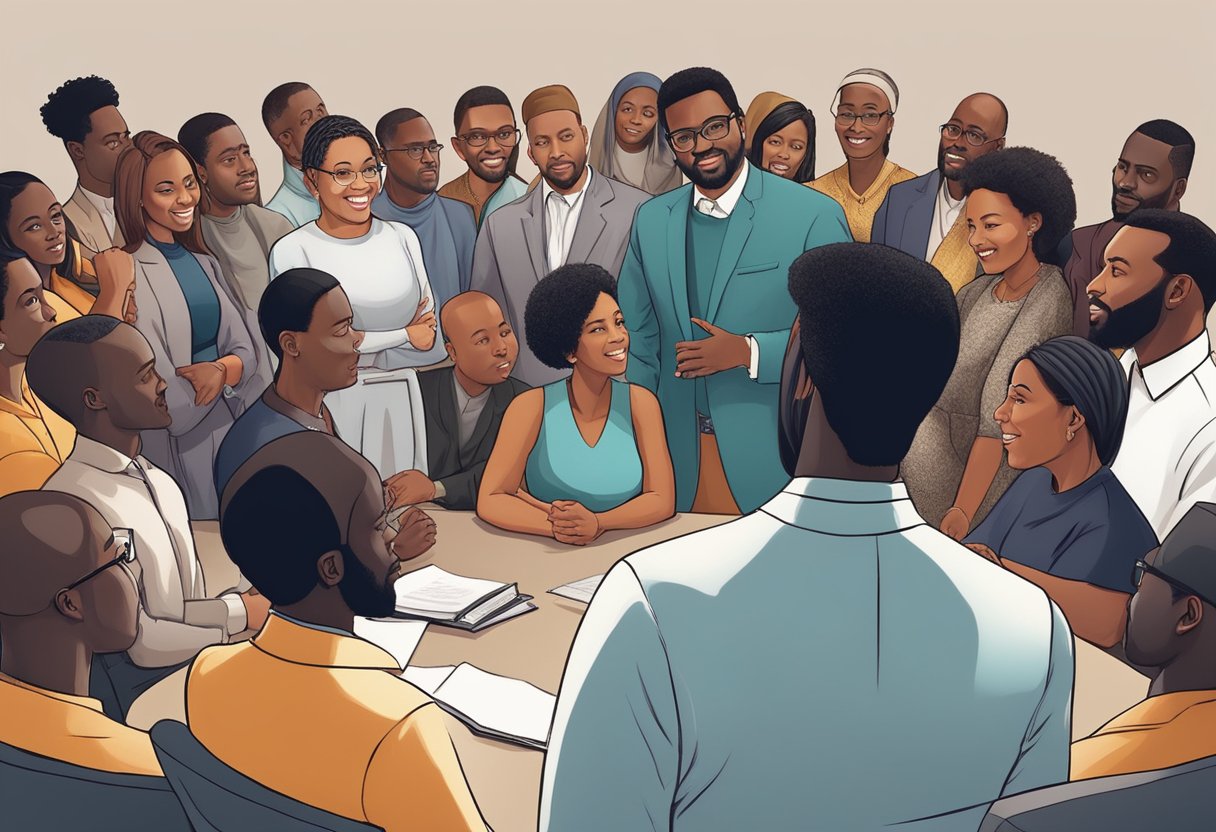
Who are some notable Black Christian leaders in history?
- Bishop Richard Allen (1760-1831): A minister, educator, and writer, Allen founded the African Methodist Episcopal Church, the first independent Black denomination in the United States.
- Harriet Tubman (c.1822-1913): Known for her role in the Underground Railroad, Tubman was also a devout Christian who believed her faith guided her in her efforts to free enslaved people.
- Martin Luther King Jr. (1929-1968): A Baptist minister and civil rights leader, King’s faith deeply influenced his nonviolent approach to fighting racial segregation and injustice.
- Reverend Dr. Renita J. Weems: A biblical scholar, theologian, and ordained minister, Weems has significantly contributed to studying women’s experiences in the Bible and African American religious thought.
What role did Black religious leaders play in the civil rights movement?
Black religious leaders played a crucial role in the civil rights movement. They provided moral guidance, spiritual support, and leadership to the movement. Some of the most well-known Black religious leaders who were involved in the civil rights movement include Martin Luther King Jr., Ralph Abernathy, and Jesse Jackson. These leaders helped to organize protests, marches, and other actions that brought attention to the injustices faced by Black Americans.
What are some notable contributions of Black Americans to Christian ministry?
Black Americans have made many notable contributions to Christian ministry. They have helped to shape the Christian faith through their preaching, teaching, and scholarship. Some of the most significant contributions include the founding of historically Black colleges and universities and the leadership of Black religious leaders in the civil rights movement.
